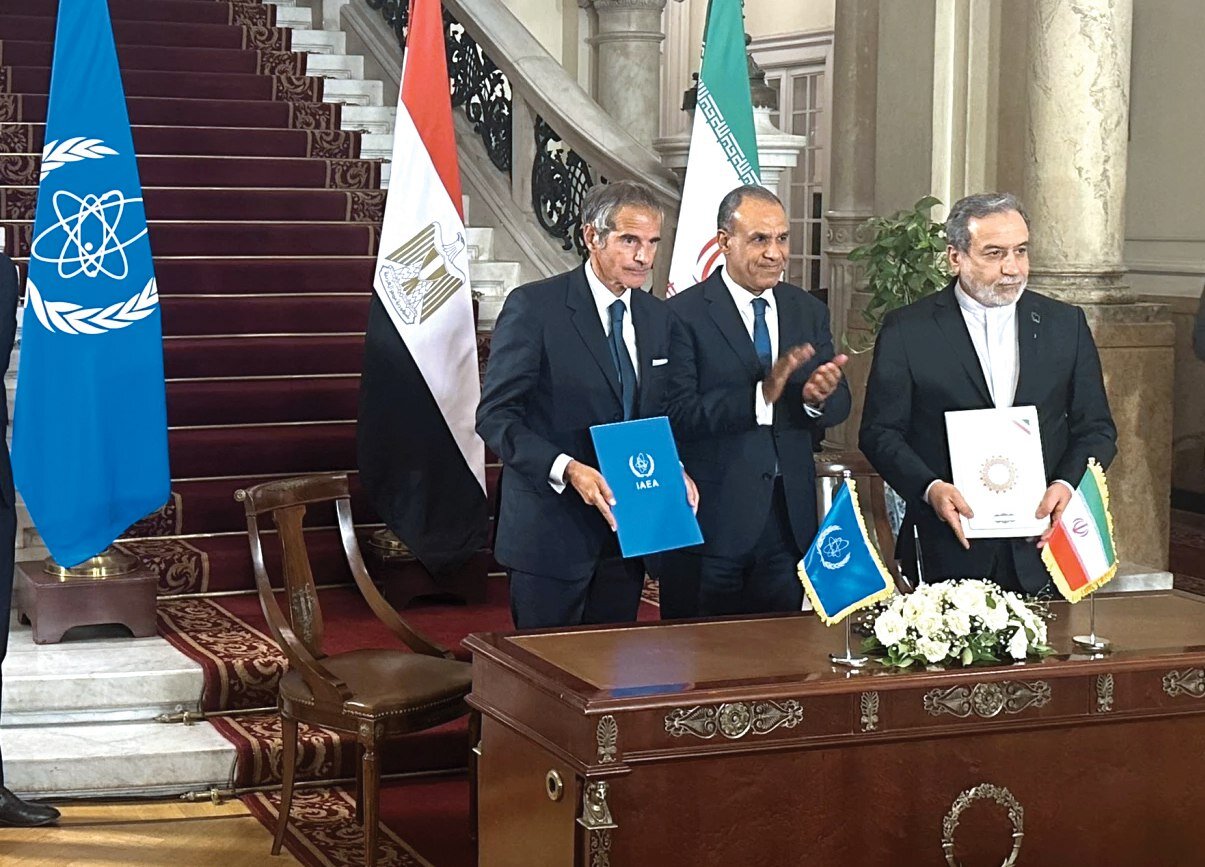Cooperation with IAEA still not a sure thing
Iran’s top security body says renewed attacks, return of UN sanctions will force country to ditch Cairo deal

TEHRAN – The agreement signed in Cairo last week between Foreign Minister Abbas Araghchi and International Atomic Energy Agency (IAEA) Director General Rafael Grossi to resume cooperation sparked consternation among conservatives in Iran and placed domestic pressure on the Pezeshkian administration.
Now, the Supreme National Security Council (SNSC) has stepped forward to announce what should have been clear from the beginning: the agreement was approved by the SNSC, Iran’s top security body, and there's no guarantee the deal will come to fruition if Iran’s rights and safety are not respected.
The council comprises the president and several of his ministers, Iran's top military commanders, the parliament speaker, the judiciary chief, and one or more representatives of the Leader of the Islamic Revolution, Ayatollah Seyyed Ali Khamenei. It also operates through multiple specialized committees led by the country’s top experts and analysts.
Following U.S.-Israeli attacks on Iranian nuclear sites in June, the Iranian parliament passed a bill establishing SNSC as the determining body regarding Iran's relationship with the IAEA. The resolution suspended ties with the UN nuclear watchdog, citing its failure to take a definitive stance on the attacks and accusing it of having facilitated the aggression through a report alleging Iranian non-transparency. The bill also said the suspension should remain in effect unless the SNSC decides otherwise.
In a statement released on Sunday, the council said it approved of the Cairo agreement after a thorough scrutiny by its nuclear committee. “The text of these arrangements was reviewed by the Nuclear Committee of the Supreme National Security Council, and what has been signed is essentially the same as what was approved by that committee,” the statement read.
The new deal does not have practical steps. Rather, it promises to explore ways to allow IAEA inspectors back into the country. Inspections at the three nuclear sites targeted during the war (Esfahan, Natanz and Fordow) will take longer to resume, according to the SNSC.
“After the necessary security and safety conditions are established, Iran will submit its report to the IAEA only after obtaining the opinion of the SNSC. Also, the practical methods for Iran-IAEA cooperation on the report submitted to the agency should be agreed upon by the two sides. Any action must be approved by the SNSC,” the body’s statement added. It, however, warned that implementation would stop of the U.S. and Israel decide to repeat the June saga, or the E3 (Britan, Germany, and France) restores UN sanctions against Iran.
In late August, European signatories to the Joint Comprehensive Plan of Action (JCPOA)—a 2015 agreement from which the U.S. withdrew three years later, prompting Europeans to subsequently abandon their commitments—activated a process to reinstate UN sanctions against Tehran. The JCPOA allows signatories to reimpose these sanctions if they deem Iran non-compliant.
Iranians argue that Europe lacks the moral and legal right to pressure Iran, as the country only scaled back its commitments after the U.S. withdrew from the JCPOA and Europeans, despite remaining official signatories, effectively followed suit.
For the time being, Europe can prevent a further escalation with Iran by securing a new UN Security Council resolution that extends relief from the pre-JCPOA UN sanctions. Furthermore, South Korea, the rotating president of the UNSC, has finalized a draft resolution that would permanently lift the anti-Iran UN embargos. That, however, is unlikely to be adopted.
The potential restoration of UN sanctions currently appears to be the greatest threat to the implementation of the Cairo deal. During a Saturday meeting with Iranian lawmakers, a significant portion of Araghchi’s remarks focused on this threat.
Leave a Comment